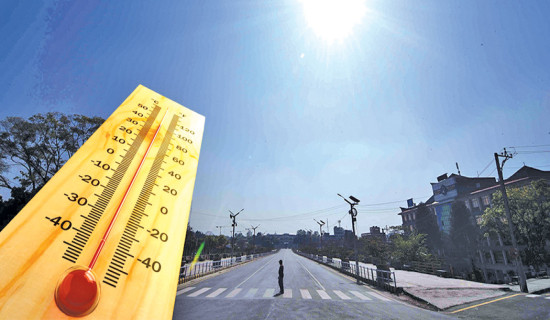- Tuesday, 23 December 2025
Trickle-down Effect In Public Procurement
In Nepali public procurement law, the term "trickle-down effect" describes how procurement regulations and practices affect different societal and economic levels. It is a crucial aspect of government expenditure that involves the government acquiring products, services, and works from the private sector. The way public procurement is handled may have a big impact on social justice, public welfare, and economic growth. It makes up a sizable portion of government spending. According to the trickle-down effect, the results and advantages of public procurement should not be limited to a small group of people but rather should benefit a variety of demographic and economic groups. Effective, transparent, and corruption-free procurement procedures may benefit the nation's governance, economic growth, and general well-being.
Transparency
Public procurement is vital to the operation of the government and the economy in Nepal, as it is in many other nations. Achieving public policy objectives, fostering economic development, and combating corruption all depend on the openness, equity, and effectiveness of public procurement procedures. It basically means that when the highest level of government adopts and upholds more responsible, transparent, and efficient procurement procedures, the advantages of these advancements will progressively trickle down to the public and lower levels of government.
There are several ways that the trickle-down effect might appear:
National level laws: Through laws and regulations, Nepal's central government establishes the rules and regulations for public procurement. These laws set down the guidelines, protocols, and standards that government entities must adhere to when acquiring goods and services. Their purpose is to encourage responsibility, competitiveness, and openness.
Implementation and enforcement: Adequate national enforcement of public procurement rules and regulations establishes a standard for the proper conduct of procurement. This may result in government ministries' and departments' procurement procedures being improved.
Enhancing national procurement procedures can also result in more efforts being made in the areas of training and capacity building. Government employees and procurement professionals can develop the skills and information required for effective and transparent procurement procedures by participating in training programmes.
Lower levels of government: As national best practices and enhanced protocols are developed, they may have an impact on Nepal's province and local government organisations' procurement policies. Public procurement is within the purview of these lower governmental tiers, which also frequently develop and modify national norms and protocols.
Economic development and fair competition: An atmosphere that is more business-friendly is created by transparent and competitive governmental procurement procedures. Small and medium-sized businesses (SMEs), among other business sizes, are more likely to engage in government tenders, which promote economic growth and employment creation.
Public welfare: The ultimate goal of the trickle-down effect is to improve society as a whole. Effective public service delivery and prudent use of public money are made possible by transparent and efficient public procurement. This can thereby enhance the general well-being of the citizens.
The government must continuously monitor and assess procurement practices, give procurement officials continuous training and support, and promote the active involvement of civil society organisations and the private sector in the monitoring and evaluation process if it hopes to increase the effectiveness of the trickle-down effect in Nepal's public procurement laws. This can guarantee that public procurement procedures support the wellbeing of the populace as well as the economic development of the nation. It is noteworthy that the efficacy of these measures is contingent upon their appropriate execution and enforcement. To guarantee that the intended advantages of these rules reach a wider range of stakeholders and support Nepal's socio-economic development, regular monitoring and assessment of public procurement procedures is required.
Implementation
The notion that good reforms at the national level can have a trickle-down impact to lower administrative levels, benefiting local governments, companies, and individuals nationwide, is referred to as the "trickle-down effect" in Nepali public procurement policy. This idea is based on the conviction that resource distribution equity and economic growth may be significantly impacted by open and effective procurement procedures. Like in many other nations, Nepal's public procurement laws' ability to have the intended trickle-down effects is contingent upon its design, implementation, and the government's dedication to open, equitable, and responsible procurement procedures. It also depends on companies and other stakeholders involved in public procurement being engaged and compliant. Maximising the benefits of public procurement for national economic growth, social welfare, and sustainable development is the ultimate objective.
(The author is an advocate.@attanupam)

















